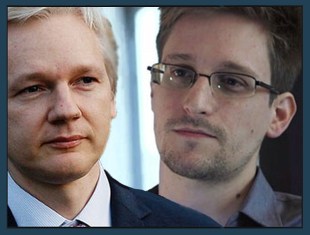 Chris has thought about Julian Assange a lot more than I have:
Chris has thought about Julian Assange a lot more than I have:
What drove Julian Assange to start WikiLeaks? Do you think he’s a white, gray, or black hat? Has your opinion of Assange or Snowden changed at all due to the leaks and Russian involvement?
I’m going to assume Assange started Wikileaks for the reason he said he started it. From a recent Bloomberg story I can’t locate presently:
“A decade ago, when Assange founded WikiLeaks, it was a very different organization. As Raffi Khatchadourian reported in a 2010 New Yorker profile, Assange told potential collaborators in 2006, ‘Our primary targets are those highly oppressive regimes in China, Russia, and Central Eurasia, but we also expect to be of assistance to those in the West who wish to reveal illegal or immoral behavior in their own governments and corporations.’ For a while, WikiLeaks followed this creed.”
The same story shows how the organization has gone off the rails, most recently proposing the tracking of verified Twitter users’ homes, families, and finances. Um, no thanks. That seems to be the Big Brother that Assange looked to take down initially.
When Agent Orange sided with Assange Over the CIA, that was disturbing on more than one level. Sarah Palin’s support further diminishes.
I thought, 10 years ago, that he was a white hat if you will, but certainly not now.
Whereas Edward Snowden I’ve seen differently. He was just a guy who believed that the Constitution of the United States was being violated by its very government. He believed that protection from unwanted and illegal government attention should be afforded to every citizen.
I wondered if I, in the same situation, might have been tempted to do the same, be a whistle-blower, to detail these conflicting, interrelated issues of national security, privacy, civil liberties, and Internet freedom. Librarians, after all, have been at the forefront of the fight for freedom, changing the way records are no longer kept in the wake of the so-called USA PATRIOT Act.
He changed the business model. “The NSA relied on Internet giants to do surveillance for them (surveillance being a major part of the Big Data business model), and pre-Snowden, there was no real downside to cooperating with illegal NSA spying requests — in some cases, spooks would shower your company with money if it went along with the gag. Post-Snowden, all surveillance cooperation should be presumed to be destined to be made public, and that’s changed the corporate calculus.”
I wish I had seen “Citizen Four,” Laura Poitras’ film about abuses of national security in post-9/11 America. “In June 2013, she and reporter Glenn Greenwald flew to Hong Kong for the first of many meetings with the man who turned out to be Edward Snowden. She brought her camera with her.”
I did watch that John Oliver interview of Snowden in 2015, in Russia. As a buddy of mine put it, “he was clear, clever, and careful in how he responded, even when he was adopting the joke angle. He earned a lot of my respect just in how he dealt with Oliver’s interjections and his goofy gimmick interview style.”
Did Edward Snowden sabotage the war on terrorism? Did he provide too much information to Russian intelligence? Or did he let the American public know about the illegal activities that the US Government was doing in their name and at their expense? Possibly all of the above.
Someone wrote recently that, if he were a real patriot, Snowden would come home, and like a Father Berrigan, face his accusers, and let the ACLU or others defend him. That’s a personal decision only he can make.
I find Julian Assange to be an arrogant twit, whereas Edward Snowden appears to be a bright guy, but way out of his depth.


